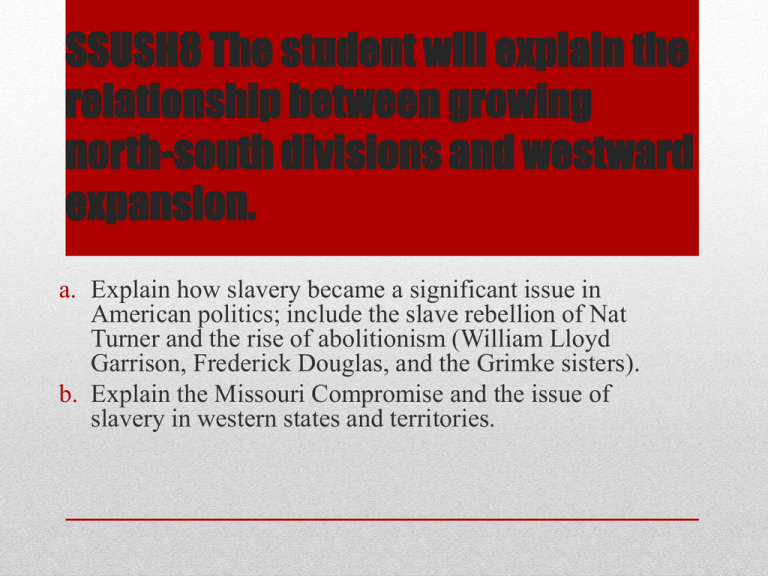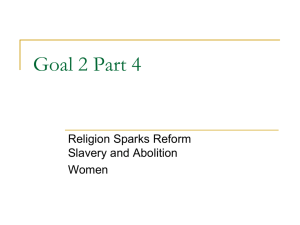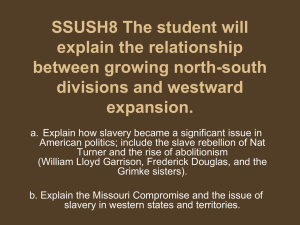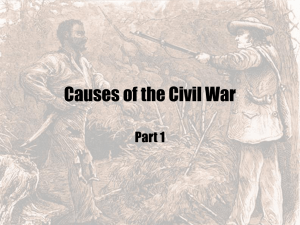north-south divisions and westward expansion
advertisement

SSUSH8 The student will explain the relationship between growing north-south divisions and westward expansion. a. Explain how slavery became a significant issue in American politics; include the slave rebellion of Nat Turner and the rise of abolitionism (William Lloyd Garrison, Frederick Douglas, and the Grimke sisters). b. Explain the Missouri Compromise and the issue of slavery in western states and territories. Slavery and the Southern Economy • The South was mainly agricultural with little manufacturing. • The main crops during the mid 1800s were rice and cotton, both which required extensive labor to produce. • Though slavery was prevalent in the South, the majority of Southerners did not own slaves. Nat Turner’s Revolt • Slave Codes put restrictions on slaves, preventing them from learning to read and write. • Nat Turner, a Virginia slave, believed God had chosen him to lead a revolt. • Turner and his followers killed more than 50 people before being caught. • Turner’s Revolt led to states passing even stricter codes and restrictions on slaves. The Missouri Compromise • In 1819 the U.S. consisted of 11 free and 11 slave states. • Missouri applied for statehood as a slave state in 1819 • To off set the imbalance, Maine applied for statehood as a free state. • The Missouri Compromise granted statehood to both and set a boundary in which areas slavery could expand. Why would the South agree not to expand slavery into the Unorganized Louisiana Territory? Abolitionist • Grimke Sisters: South Carolina sisters who moved north to promote the abolitionist movement. • William Lloyd Garrison became one of the country’s leading abolitionist, publishing the pro-abolitionist newspaper the Liberator. • Fredrick Douglas, a former slave, published the newspaper the North Star and an autobiography. Questions 1. Why was slavery more prevalent in the Southern states? 2. What were the results of Nat Turner’s slave revolt? 3. What was the purpose of the abolitionist movement? What made the Grimke Sisters different than many abolitionist? 4. What was the purpose of the Missouri Compromise? Why were there few slaves in the western states?











